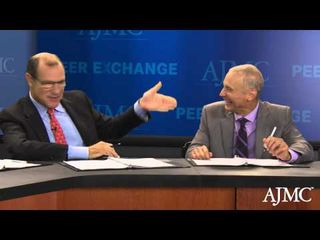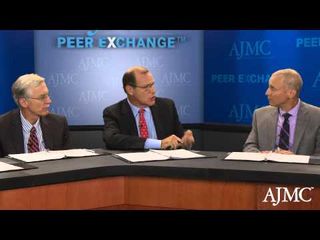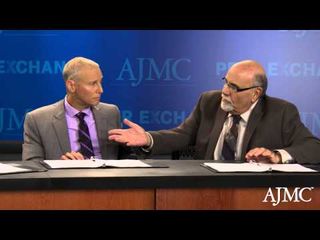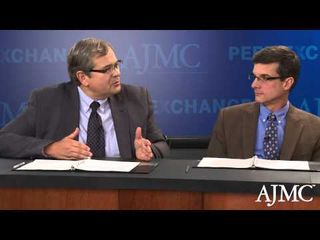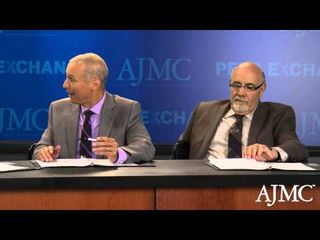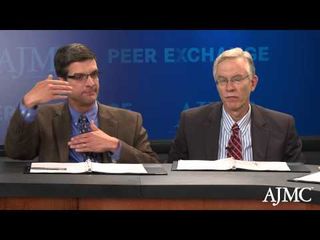
Value-Based Care
Latest News
Latest Videos

CME Content
More News

In 2001, Maryland began to reimburse hospitals for excess volume at full case rates. The authors investigated the impact on hospital utilization and finances.

Providers recently reviewed the cost-effectiveness of accountable care organizations (ACOs). While half of surveyed providers said value-based reimbursement had potential to improve population health management, as well as the patient experience, 80% said it would require more staff, more time, and greater financial investments.

CMS stated that they seek recommendations about how the ACO program might evolve to "encourage greater care integration and financial accountability."

Paige Cooke, assistant director, customer engagement, National Committee for Quality Assurance, says that primary care practices cannot effectively deliver patient-centered care without coordinating a patient's care across different healthcare settings.

The American Journal of Managed Care followed up the first meeting of its ACO and Emerging Healthcare Delivery Coalition with its first interactive conference call, which was open to all members. Anthony Slonim, MD, DrPH, a Coalition co-chair who on July 1 will become president and CEO at Renown Health in Reno, Nev., moderated the roundtable discussion.

Accountable and patient-centered care delivery models were at the forefront of discussions among coalition members.

A growing body of evidence is demonstrating how the benefits of Connected Care, electronic communication between patient and caregiver, are improving healthcare access and quality and reducing costs for payers-without passing through Congress.

Accountable care organizations have an opportunity to gain knowledge in improving health outcomes, improving patient experience, and reducing costs by working closely with practices that have adopted the patient-centered medical home model.

Improving attention paid to patient preferences when matching patients and physicians on the basis of value and quality rather than costs and outcomes can help a patient achieve the overall healthcare experience.

Pilot program implemented at Hackensack ACO that provides hospitals and ACOs an early warning system to manage their highest risk patients.

Palm Beach ACO discusses the grassroots approach they took to becoming one of 29 ACOs to earn shared savings in the first performance year.

The US healthcare system's shift from volume- to value-based reimbursement for treatment in order to lower costs and improve patient care is disrupting healthcare business models. The high-profile government—led accountable care organizations (ACOs), which put financial pressure on payers and providers to share responsibility for meeting quality and cost goals, is no exception.

Dr. Farzad Mostashari, former head of the Office of the National Coordinator for Health Information Technology, is starting a new firm, Aledade, to help independent primary-care physicians form accountable care organizations.

Kimberly Westrich, director for health services research for the National Pharmaceutical Council (NPC), says that the NPC determined many accountable care organizations (ACOs) are not yet prepared to maximize the value of pharmaceuticals in patient care.

Despite reform and shifts in health policy, the United States healthcare system ranked last in quality compared with 10 other industrialized counties-just as it did in 2010, 2007, 2006, and 2004.

Michael Evans, RPh, director, ambulatory clinical pharmacy programs, says that medication therapy management (MTM) programs present various challenges. In particular, those challenges include medication reconciliation, ensuring that patients are adherent to their medications, and clinician prescribing practices.

Integrated healthcare systems, with associated providers and health plans, have a leg up on implementing accountable care organizations to improve care and lower costs. Leaders from two Washington-based integrated systems shared some best practices and lessons learned for ACO success during a panel discussion Thursday at the AHIP Institute in Seattle.

Healthcare stakeholders suggest that the key to success for any accountable care organization (ACO) is its mix of data analytics and patient accountability.

David Alain Wohl, MD, associate professor, division of infectious diseases, University of North Carolina at Chapel Hill, suggests that quality management of HIV has, for the most part, been self-regulated. He says that when it comes to HIV management, there is a lack of feedback or "quality improvement mechanisms" outside the managed care setting.

The continued advances in cancer treatment are improving patient survival, but the healthcare industry is bursting at its seams.

Deneen Vojta, MD, UnitedHealth Group, says that the healthcare landscape is shifting to delivery models that focus on greater value-based care, such as accountable care models.

Accountable Care Organizations have given little attention to surgery in the early years of the Medicare program, choosing to focus instead on managing chronic conditions and reducing hospital readmissions.

The American Society of Clinical Oncology's algorithm to help oncologists evaluate the clinical benefits, side effects and costs of a cancer drug or therapy will be fine-tuned over the summer and should be available for public comment by the fall, said Dr. Lowell Schnipper, chair of the society's Value in Cancer Care Task Force.

David B. Hoyt, MD, FACS, executive director, American College of Surgeons (ACS), says that his organization has studied the concept of improving and sustaining quality while lowering costs. They find there are a variety of results when it comes to hospitals creating, meeting, and maintaining quality standards.
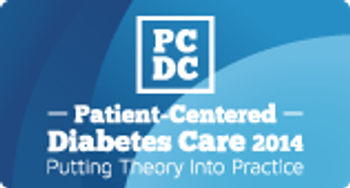
Robert Gabbay, MD, PhD, discusses the changes he wishes to see in the healthcare system that he calls a "journey toward quality," and with his work at the Joslin Diabetes Center, he dreams of ridding the world of diabetes by implementing innovation.

